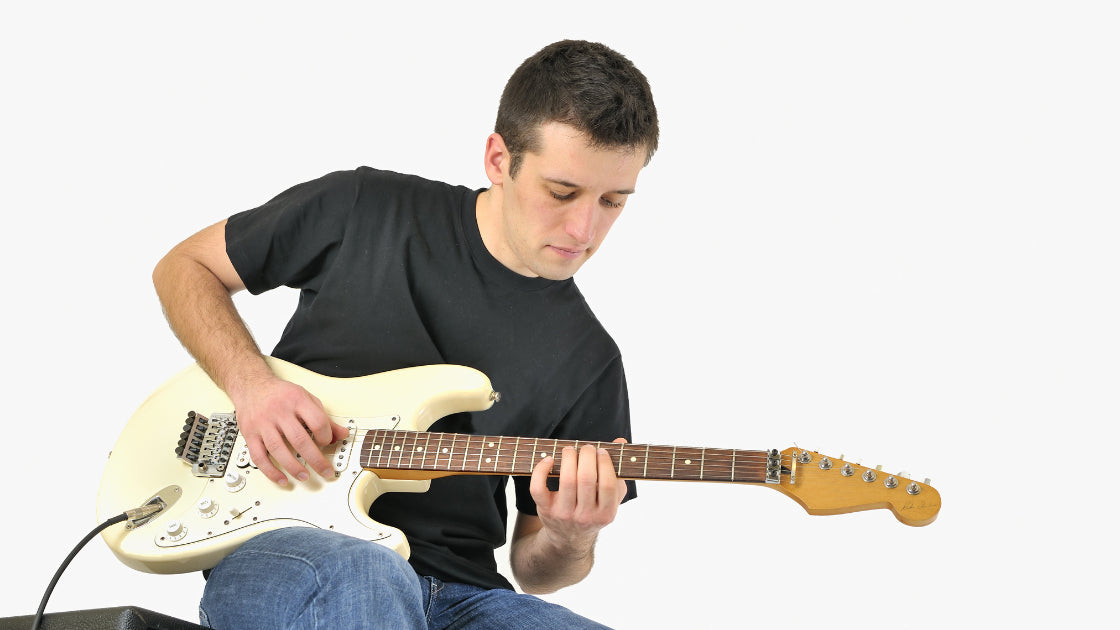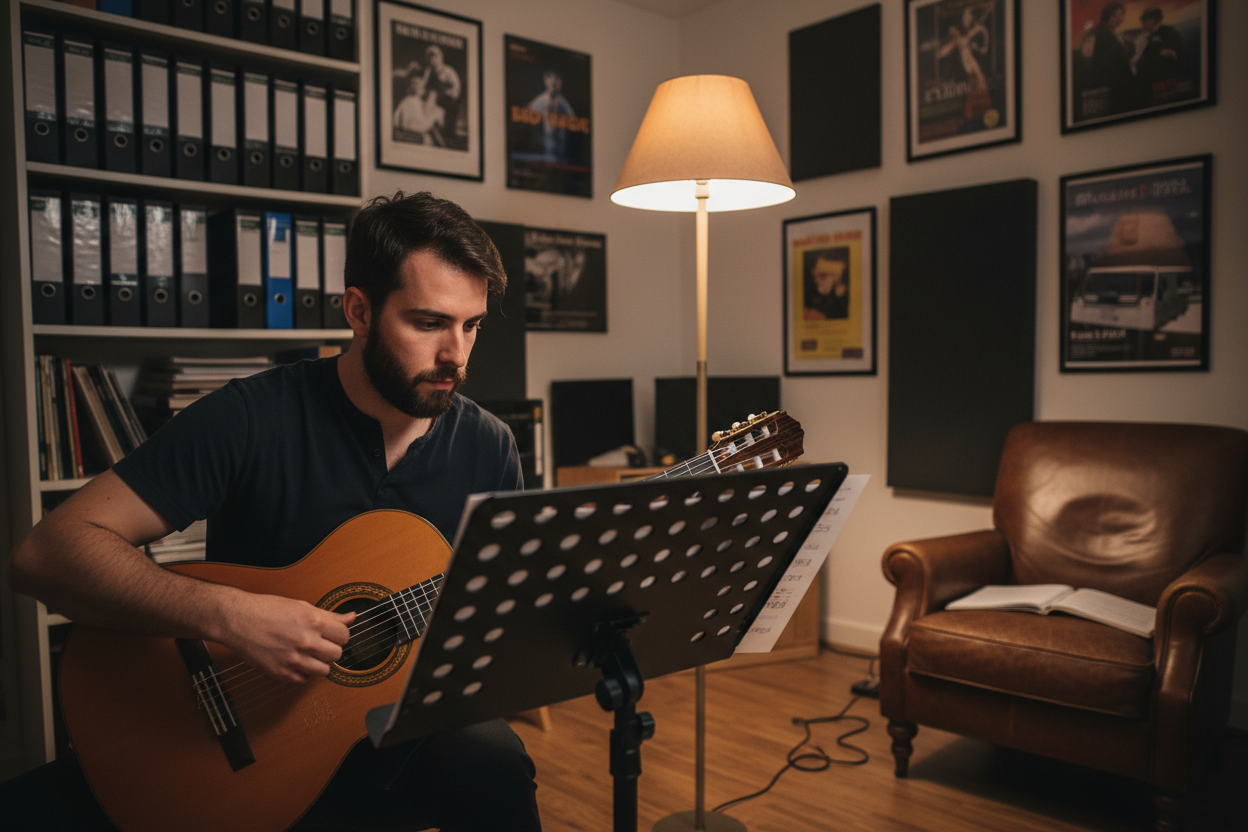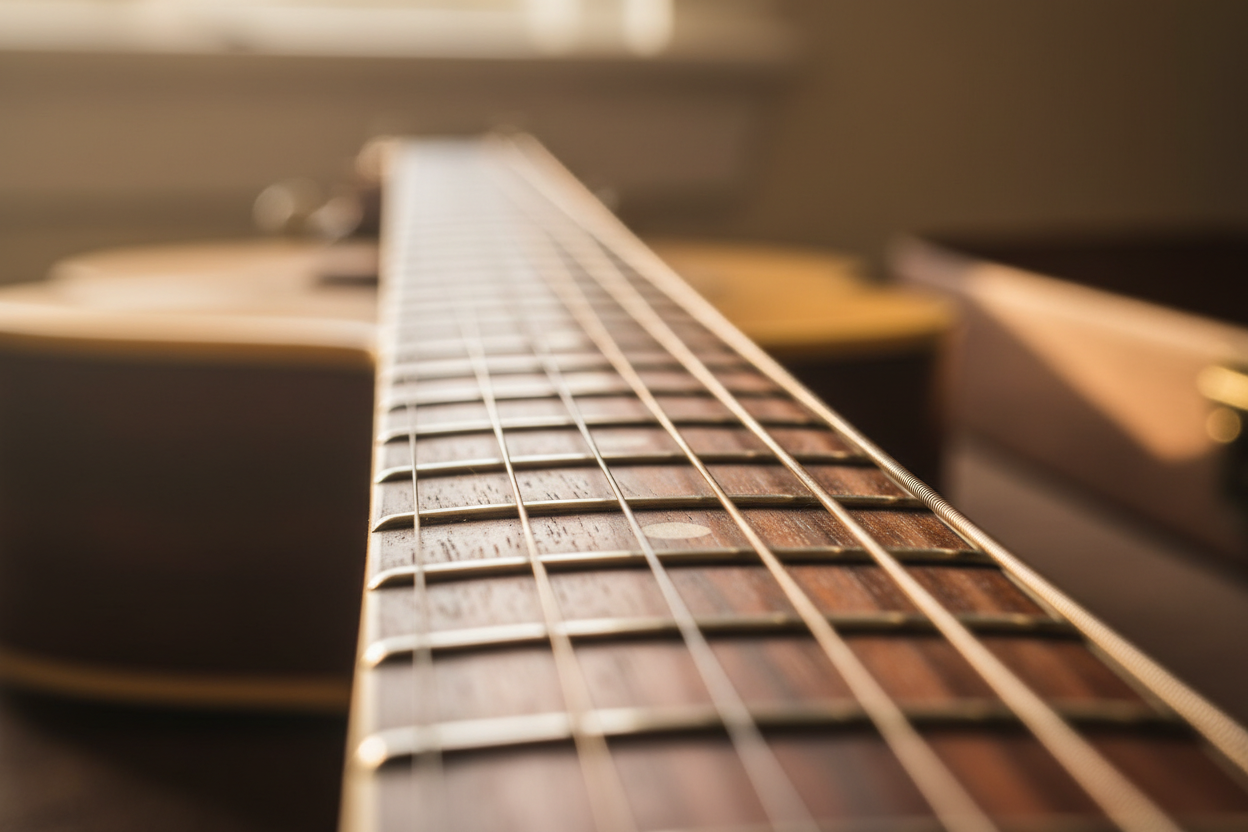Have you ever wondered why some double-stop bends, unison bends, and harmonic intervals have a pulsating sound? When you play these intervals on a guitar, you might notice that the notes seem to vibrate or pulsate, creating a unique and interesting sound. In this article, we'll explore the science behind this phenomenon and explain why it happens.
Harmonic Minor Seconds
Let's start by discussing harmonic minor seconds. The pulsating sound or beat frequency of this particular interval is rather strong. When you play two notes that are a minor second apart, such as C and C#, the frequencies of the two notes are very close together. However, they are not exactly the same, which creates a phenomenon called beating. Beating occurs when two sound waves of slightly different frequencies interfere with each other, creating a pulsating or vibrating effect.
In the case of a harmonic minor second, the beating is caused by the interference between the fundamental frequency of one note and the first overtone of the other note. The first overtone is a frequency that is twice the fundamental frequency of a note, and it is the most prominent overtone in most musical instruments. When you play two notes that are a minor second apart, the first overtone of one note will be close to the frequency of the other note's fundamental frequency. This creates a beating effect that you can hear and even feel through your instrument.
Unison and Double-Stop Bends
Now, let's talk about unison and double-stop bends. When you do a unison bend on a guitar, you are bending a single note to match the pitch of another note. Similarly, in a double-stop bend, you are bending two notes simultaneously to create a pitch that is somewhere between the two original notes. As you bend the notes, the difference in frequency between them changes, which affects the interference between the two sound waves. This can create a pulsating effect that is similar to the beating effect of a harmonic minor second.
The pulsating effect of a unison or double-stop bend is most noticeable when you do a slow bend, such as a whole-step bend. As you bend the notes, the difference in frequency between them decreases, causing the pulsating effect to slow down and eventually disappear as the two notes become more in tune with each other. This effect can add an exciting texture and feel to the music, especially in genres such as blues and rock, where bends are often used to create expressive and emotive solos.
Feeling the Pulsation
Not only can you hear the pulsating effect of harmonic minor seconds and double-stop bends, but you can also feel it in your hand that is holding the guitar neck. The pulsation is caused by the alternating constructive and destructive interference of the sound waves, which creates a slight movement in the guitar neck. This movement can be felt as a vibration or pulsation in your hand, adding to the sensory experience of playing these intervals.
Tuning by Ear
If you've ever tried to tune a guitar by ear, you may have noticed the beating effect we've been discussing. When you pluck two strings that are slightly out of tune with each other, you can hear a pulsating or vibrating sound. This is caused by the same interference of sound waves that occurs with double-stop bends and harmonic minor seconds.
Tuning by ear can be a challenging task, but learning to hear and adjust for the beating effect can make it easier. By listening for the pulsating sound between two strings and adjusting the tuning until the beats slow down and eventually disappear, you can achieve a more accurate tuning for your guitar.
In fact, some guitarists prefer to tune by ear rather than relying on electronic tuners or other tuning devices, because it allows them to tune the guitar to their own preferences and playing style. While tuning by ear does require some practice and a good ear for pitch, it can be a rewarding experience that helps you connect more deeply with your instrument.
Conclusion
In conclusion, the pulsating sound you hear when playing a harmonic minor second, doing a double-stop bend or unison bend on a guitar is caused by the interference between two sound waves of slightly different frequencies. This effect can create an interesting and unique texture in music, and it is often used intentionally by musicians to add depth and complexity to their compositions. So the next time you hear that pulsating sound in a guitar solo, you'll know exactly what's causing it!




